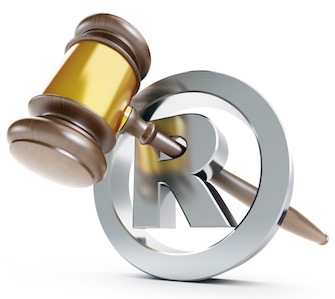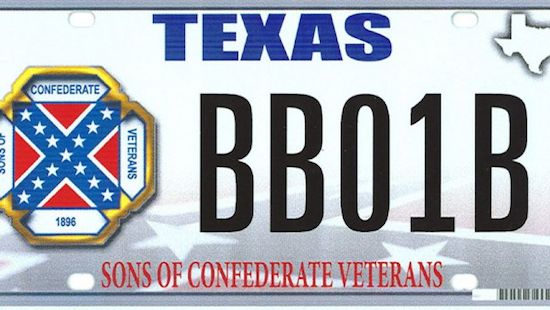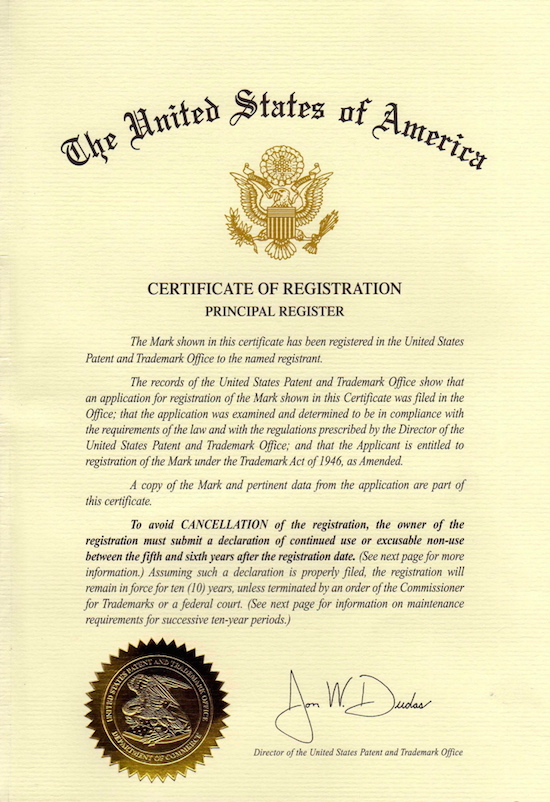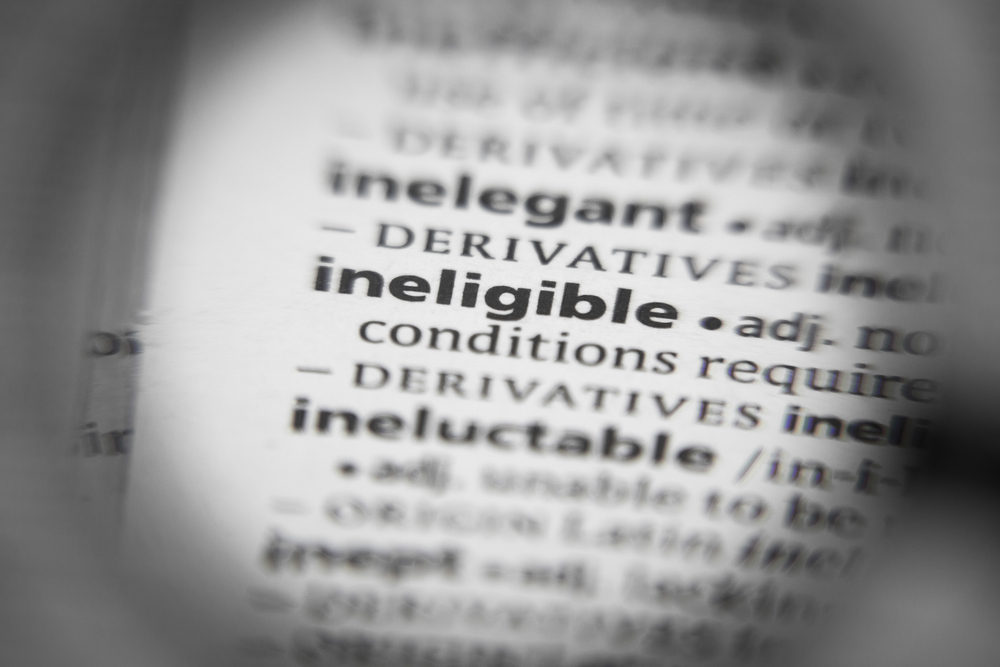 Last week the Federal Circuit scheduled oral argument en banc in THE SLANTS trademark case for the morning of October 2, 2015, taking up the question of whether §2(a) of the Lanham Act (15 U.S.C. § 1052(a)) can withstand First Amendment scrutiny.
Last week the Federal Circuit scheduled oral argument en banc in THE SLANTS trademark case for the morning of October 2, 2015, taking up the question of whether §2(a) of the Lanham Act (15 U.S.C. § 1052(a)) can withstand First Amendment scrutiny.
The PTO and the Federal Circuit Say THE SLANTS Disparages
The lead up to the en banc hearing involves The Slants, an all-Asian dance rock band founded by Simon Tam in 2006. In September 2013, the Trademark Trial and Appeal Board (TTAB) issued In re Simon Shiao Tam, a precedential opinion affirming the U.S. Patent and Trademark Office’s (PTO) refusal to grant THE SLANTS trademark registration under §2(a), which bars registration for marks “[c]onsist[ing] of or compris[ing] … matter which may disparage … persons, living or dead, institutions, beliefs, or national symbols, or bring them into contempt, or disrepute.” The TTAB panel, consisting of Chief Administrative Trademark Judge Gerard Rogers, noted that THE SLANTS mark was denied registration for being “a highly disparaging reference to people of Asian descent” that continues to be disparaging to “a substantial composite of the referenced group.” The examining attorney, in denying registration, relied on several definitions taken from various dictionaries characterizing the word as derogatory, as well as the band’s own admission that “the band name … is derived from an ethnic slur of Asians.” The group insists, however, that it adopted the band name to “reclaim” it and celebrate Asian identity. The issue at the heart of THE SLANTS case, Tam has insisted, is that “minorities should have the right to label themselves.” The TTAB rejected this reasoning, noting that regardless of the band’s efforts to redefine the term “in a positive way,” good intentions alone “does not obviate the fact that a substantial composite of the referenced group find the term objectionable.”
The burden of proving that a trademark is disparaging rests with the PTO, and §2(a) rejections are “relatively uncommon.” See In re Squaw Valley Development Co., 80 USPQ2d 1264, 1271 (TTAB 2006). The bigger question is: are they Constitutional?
The Slants appealed the TTAB’s denial to the Federal Circuit, and in April an appeals panel consisting of Judges Lourie, Moore, and O’Malley affirmed the TTAB. In re Tam, No. 2014-1203, 2015 WL 2076025 (Fed. Cir. Apr. 20, 2015). The Federal Circuit applies a two-part test to determine if a mark may be disparaging: (1) what is the likely meaning of the matter in question, taking into account not only dictionary definitions, but also the relationship of the matter to the other elements in the mark, the nature of the goods or services, and the manner in which the mark is used in the marketplace in connection with the goods and services; and (2) if that meaning is found to refer to identifiable persons, institutions, beliefs or national symbols, whether that meaning may be disparaging to a substantial composite of the referenced group.” See In re Geller, 751 F.3d 1355, 1358 (Fed. Cir. 2014). Using the test, the panel determined that THE SLANTS referenced Asians and that a substantial composite of Asians would find the term disparaging. The panel relied on dictionary definitions, news articles, and other anecdotes, including “the cancellation of the band’s scheduled performance at a conference for Asian youth” on account of the band’s offensive name.
In addition to challenging the TTAB’s refusal under §2(a), however, the band alleged that the statute was unconstitutional under the First Amendment and unconstitutionally vague. The panel rejected both arguments, following Federal Circuit precedent, which has held that because “the PTO’s refusal to register an appellant’s mark does not affect his right to use it,” or suppress expression, that no First Amendment rights are abridged. See In re McGinley, 660 F.2d 481, 484 (C.C.P.A. 1981).
The band also argued that the term “disparage” as it is used in §2(a) is subjective, and does not give “the person of ordinary intelligence a reasonable opportunity to know what is prohibited.” The panel rejected this argument, holding that although a “single objective measure” cannot establish whether a trademark is disparaging, the “well-established two-part test” articulated by the Federal Circuit in Geller is sufficiently precise to notify and instruct registration applicants. See Geller, 751 F.3d at 1358.
Moore Offers “Additional Views” and the Federal Circuit Grants En Banc Review
Writing separately after the panel decision, Judge Moore offered 24 pages of “additional views” on the matter, encouraging the Federal Circuit to “revisit McGinley’s holding on the constitutionality of §2(a),” noting that “the protection accorded to commercial speech has evolved significantly since the McGinley decision.” Today, unlike when McGinley was decided, it is “unquestionably true” that trademarks are protected speech under Supreme Court commercial speech jurisprudence. See Friedman v. Rogers, 440 U.S. 1, 11 (1979) (noting that trade names are a form of commercial speech). §2(a) might be constitutionally problematic because it allows for the denial of registration based solely on a trademark’s expressive content. Because §2(a) conditions refusal on a trademark’s content, it has the potential to chill speech.
The year McGinley was decided, the Supreme Court articulated a four-part test for determining the constitutionality of restrictions on commercial speech in Central Hudson, which remains the guiding test for First Amendment challenges today. See Cent. Hudson Gas & Elec. Corp. v. Pub. Serv. Comm’n, 447 U.S. 557, 566 (1980). The Central Hudson test asks: (1) whether the speech at issue concerns lawful activity and is not misleading; (2) whether the asserted government interest is substantial; and, if so; (3) whether the regulation directly advances the governmental interest asserted; and (4) whether it is not more extensive than is necessary to serve that interest. Under the test, the government bears the burden of justifying the challenged restriction, by showing that the restriction is in proportion to the government’s interest and that the fit is reasonable.
Moore noted that while the basic premise of McGinley – that refusal to register a mark under §2(a) does not “bar” an applicant from using the mark – is correct, that federal trademark registration nevertheless confers significant legal rights and benefits to trademark holders which increase the value of a trademark. Therefore, while a trademark’s use may not be denied, it may be burdened. The “unconstitutional conditions” doctrine seeks to avoid this result. Under the doctrine, the government may not condition the receipt of a governmental benefit (here, federal trademark registration) on the waiver of a constitutionally protected right (here, the protected, commercial lexical content of a trademark).
The unconstitutional conditions doctrine is limited, however, by Congress’ own powers under the Spending Clause. The Supreme Court has held that “when the Government appropriates public funds to establish a program it is entitled to define the limits of that program.” Incidental content-based restrictions on speech are permissible so long as the funding does not seek to regulate speech outside of the parameters of the program itself. United States v. Am. Library Ass’n, Inc., 539 U.S. 194, 211 (2003). According to Moore, “[b]ecause the government denies benefits to [trademark registration] applicants on the basis of their constitutionally protected speech, the ‘unconstitutional conditions’ doctrine applies.” Where the unconstitutional conditions doctrine applies, courts must assess whether the conditioned benefit – here federal trademark registration – was nevertheless granted pursuant to the Spending Clause. When McGinley was decided in 1981, the federal trademark registration regime was supported by taxpayer funds, distributed by Congress. Since 1991, however, “PTO operations have been funded entirely by registration fees, not the taxpayer.” As a result, modern trademark registration is not a direct result of Congress’ powers under the Spending Clause, and unlike other federal grant programs is not a federally funded benefit to the applicant, but rather a regulatory regime derived from the Commerce Clause. As a regulatory regime, the unconstitutional conditions doctrine should apply with full force.
As discussed above, content-based restrictions on speech are constitutionally disfavored. Viewpoint-based restrictions, where the government effectively discriminates or privileges certain viewpoints about subjects, are also presumptively invalid, regardless of whether Congress’ Spending Clause powers are implicated. Rosenberger v. Rector & Visitors of Univ. of Va., 515 U.S. 819, 828 (1995). Because §2(a) would not prohibit trademark holders from registering positive trademarks about Asians, for example, but would instead only prohibit registration for trademarks that “refer negatively to the same group,” Moore notes that §2(a) is a viewpoint-discriminatory restriction on speech.
The Supreme Court’s Central Hudson test for evaluating the constitutionality of commercial speech asks (1) whether the speech at issue concerns lawful activity and is not misleading; (2) whether the asserted government interest is substantial; and, if so; (3) whether the regulation directly advances the governmental interest asserted; and (4) whether it is not more extensive than is necessary to serve that interest. As discussed above, the SLANTS trademark is lawful, commercial speech, thus satisfying the first prong of the test. Moore noted that under the second prong, it would be difficult for the government to “put forth any substantial interests that would justify §2(a)’s bar against disparaging marks” when that prohibition is viewpoint-discriminatory. The Supreme Court has consistently ruled that the government’s interest in discouraging offensive (or “disparaging”) speech is illegitimate. United States v. Eichman, 496 U.S. 310, 319 (1990).
Trademarks themselves “which are applied to private goods to identify the source of the goods to consumers” are private, not government, speech. Moore noted that although the government does publish registered trademarks, doing so does not “communicate a particular message” of the government, but is instead intended to “provide notice that a mark has been registered.” The PTO itself has noted that the act of registration “is not a government imprimatur or a pronouncement that the mark is a ‘good’ one.” In re Old Glory Condom Corp., 26 U.S.P.Q.2d 1216, 1219-20 n.3 (TTAB Mar. 3, 1993). Moore suggested that because the government had not advanced any “substantial interests” that would justify the PTO’s viewpoint-discriminatory refusal to register otherwise legally-protected commercial speech in the form of a trademark, “§2(a) cannot satisfy the Central Hudson test” and should be reviewed to determine whether it violates the First Amendment.
Asian Slurs, Confederate Flags, and the Football Team from Washington
It would be hard to discuss THE SLANTS case without recognizing the giant elephant in the room – the PTO’s decision in June 2014 to remove the trademark protection of the Washington REDSKINS under §2(a). Blackhorse v. ProFootball, Inc., 111 U.S.P.Q.2d 1080 (TTAB June 18, 2014). The REDSKINS controversy has generated substantial attention from the press and from individuals and groups ordinarily likely to be anything but interested in the finer points of U.S. trademark registration. The REDKINS case has advanced at least one of the same lines of argument, namely that use of the slur by the football team has actually resulted in the linguistic gentrification of the term. Any determination by the full Federal Circuit in THE SLANTS case could be dispositive for the REDSKINS.
Also interesting to consider is whether the Supreme Court’s most recent decision regarding government speech, handed down last week, impacts whether federal trademark registration can be considered “government speech” or not. In Walker v. Texas Division, Sons of Confederate Veterans, the Supreme Court curtailed motorists’ right to choose the messages that can be displayed on government-issued license plates, holding that the messages on government plates are “government speech.” No. 14-144, 576 U.S. — (June 18, 2015). In Sons of Confederate Veterans, the Fifth Circuit had previously held that license plate decisions are in fact private speech, and the government engaged in viewpoint-discrimination when it refused to approve the SCV’s proposed design featuring a Confederate battle flag. If this argument sounds familiar, it’s because Judge Moore advanced similar arguments with her “additional views” in THE SLANTS case. The Supreme Court held that the analysis articulated by the Court in Pleasant Grove City v. Summun controlled when determining whether the speech in question is private or government speech. 555 U. S. 460, 467–468 (2009). The Court in Sons of Confederate Veterans, as in Summun, considered whether governments have historically used the instrumentality in question to communicate a message from the government, whether the instrumentality is “closely identified in the public mind” with the government, and whether the government maintains direct control over the messages conveyed through the instrumentality (be they privately-designed license plates, as in Sons of Confederate Veterans, or privately-donated park monuments, as in Summon). The Court in Sons of Confederate Veterans likened a motorists’ license plate to a government-issued ID, noting that the state “presents [license plate] designs on government-mandated, government-controlled, and government-issued IDs that have traditionally been used as a medium for government speech. And it places the designs directly below the large letters identifying ‘TEXAS’ as the issuer of the IDs.” This, according to the Court, had the effect of conveying a government message, and thus constituted government speech. The dissent, however, argued that few people would view vanity plates, for example, as being government expression, rather than an individual motorists’.
Despite some preliminary speculation, its important to underscore how different the Sons of Confederate Veterans case and THE SLANTS case are in numerous, key ways. For instance, Texas’ refusal to permit the Confederate battle flag license plate design has the effect of completely suppressing the speech in question, whereas the PTO’s refusal to register THE SLANTS does not. License plates, however, rather than federally registered trademarks, likely have a better claim to having been “historically used” by government to convey messages. Either way, Judge Moore conclusively stated in THE SLANTS case that “[t]he public is not likely to believe that a registered trademark conveys the imprimatur of the government” because a “trademark is printed on private property, in fact commercial goods, not on any government property.” In stating as much, Judge Moore began to informally apply bits and pieces of Supreme Court precedent for the necessary determination of when an entity like the PTO is engaging in government speech. The full Federal Circuit will have to square its own determination within a constitutionally recognized framework, and possibly make a convincing argument for why federal trademark registration differs from license plates or privately donated park memorials.
No matter how the full Federal Circuit decides THE SLANTS case in October, formerly denied registrants and hopeful registrants of “disparaging” marks are likely to be watching, but refusing to register an offensive trademark remains constitutional … for now.

![[IPWatchdog Logo]](https://ipwatchdog.com/wp-content/themes/IPWatchdog%20-%202023/assets/images/temp/logo-small@2x.png)



![[Advertisement]](https://ipwatchdog.com/wp-content/uploads/2026/02/Junior-AI-Feb-10-2026-sidebar-day-of-webinar-700x500-1.jpg)
![[Advertisement]](https://ipwatchdog.com/wp-content/uploads/2026/02/Anaqua-Feb-12-2026-sidebar-700x500-1.jpg)
![[Advertisement]](https://ipwatchdog.com/wp-content/uploads/2026/02/Ankar-AI-Feb-17-2025-sidebar-700x500-1.jpg)
![[Advertisement]](https://ipwatchdog.com/wp-content/uploads/2025/12/LIVE-2026-sidebar-regular-price-700x500-1.jpg)







![[Advertisement]](https://ipwatchdog.com/wp-content/uploads/2021/12/WEBINAR-336-x-280-px.png)
![[Advertisement]](https://ipwatchdog.com/wp-content/uploads/2021/12/Ad-4-The-Invent-Patent-System™.png)







Join the Discussion
10 comments so far.
Anon
July 16, 2015 08:10 amI would also point out that “who owns the protections” has immediate (and obvious) fallout as to the question of standing and using the court system to enforce those protections.
If it is truly the government that owns “the speech,” if we divide the registration from the underlying item, then does the holder of the underlying item have “the right” to drag someone else into a court to enforce that which is property of the State?
This is not an idle distinction – and goes back directly to the heart of the Locke philosophy.
Anon
July 16, 2015 06:55 amAt first blush, the answer is easy Felicia: different laws. Trademark Law has a morality clause while copyright law does not (currently).
But the argument that the judges use here, particularly the one that this Trademark Registration is government speech as opposed to Trademark holder speech (be that holder and that content of a commercial or non-commercial identity set aside for the moment), raises a serious point: Is not copyright also “Government Speech?”
The same distinction applies: Even if the Government were to insert into copyright some type of “morality clause,” one would be still “free to use” anything that falls out of copyright protection, so the copyright and the underlying item are separate, and the actual copyright protections are belonging to the administrative state.
Of course, this would then impact our treaty obligations, which state that no mere “administrative requirements” impact the right that is copyright.
In a very real sense, we return to a philosophical difference (or lack thereof) drawing back to the Locke era: “Life, Liberty and Property” as opposed to “Life, Liberty and the Pursuit of Happiness” – pursue all you want, the property aspect is not a foundation that the government recognizes.
Felicia
July 12, 2015 05:30 pmBrian, I have a question. A bit far reaching perhaps, but something I’m pondering. I understand both trademark law and copyright law to be something our federal government controls. So if the Slants and the Washington Redskins are being denied protection from our govt. under trademark law, how can songwriters continue to be protected by the same govt. under copyright law when songs include racial slurs, misogyny, violence, etc.? Seems hypocritical to me.
HTTR!
Anon
July 9, 2015 07:24 amThe decision is out – and it is an interesting one. At first blush, the “this is not really your property” is the outcome here.
It is difficult to swallow several aspects. First, the attempted distinction between “registration” and the object being registered, and then calling that difference both government speech AND a matter of public concern. The logic collides. The logic evades as well the reality that the issue (and property) is not the difference per se, but rather, the creation of personal rights (very much different than the license plate content case, btw) that accompany the trademark registration. One quite obvious (legal) difference has to do with individuals pursuing redress in the courts for trademark infringement. If Trademarks are indeed government speech and absent property right of the individual, then the ever present requirement of standing should rear its ugly head – and the logic (if taken to its next step) would be that only the government has standing to pursue trademark infringement cases.
Brian Focarino
July 7, 2015 12:42 pmAnon: Thanks! I had considered including the billboard case but in the interests of space (and attention span) opted not to. I agree generally that government regulated speech is not automatically transformed into government speech. Reasonable minds have come out on different sides of the debate as it pertains to trademark registration. Here’s an interesting article from April discussing the REDSKINS case where two American University WCL Professors conclude that “the best analogue for this type of government regulation[, that is to say federal trademark registration,] is government speech.” However the Federal Circuit rules in October, I’d bet amici will doubtless come down on both sides of the aisle leading up to the hearing. http://www.pijip.org/2015/04/23/the-first-amendment-and-the-redskins-trademark-part-i-government-speech/
Anon
July 7, 2015 08:51 amIn an era of sound byte “journalism” and “this is what the law is because I slept at a Holiday Inn last night,” your article was a refreshing – even exhilarating read. It does not hurt that I am a big Chief Wahoo fan, a big First Amendment fan, and a big IP law fan.
That said, I wonder if the Texas license plate case might not be explored more for the result that stems from the converse of the facts of that case (especially in light of the “twin” First Amendment case this very same term).
To wit: the government may control ONLY government speech as comes to a content based view without drawing one of the strictest First Amendment reviews. With that in mind, there should be a sharp distinction with the fact that the Trademark system is most definitely not concerning government speech – a regulated system does not make speech into government speech.
Brian Focarino
July 6, 2015 12:09 pmHi Rich – we certainly do. Glad you liked it. A number of the federal trademarks for N.W.A. were abandoned back in 2004/05 (after enjoying the benefits of registration for about 4 years), but at least one trademark of theirs that is still live (http://tess2.uspto.gov/bin/showfield?f=doc&state=4810:yxnkll.2.44). Interesting to consider the impact that using a full term versus an acronym has on consumer perception, as well. Acronyms can still be disparaging but are “one step removed” in a way from, in a sense, from the full impact of an outright term that’s registered.
Rich Thomas
July 6, 2015 10:00 amHello Brian,
You drafted a really great article on this subject. Thanks.
Wonder how this will play out for other trademarks, e.g., “N.W.A.” We live in interesting times.
Brian Focarino
July 6, 2015 09:54 amEG: Thanks I’m glad you liked it. You and Dan Snyder should both keep an eye on the case in October!
EG
July 6, 2015 09:11 amHey Brian,
Really nice article on this subject. And I remain a loyal and unrepentant Washington Redskin fan. Hail to the Redskins!